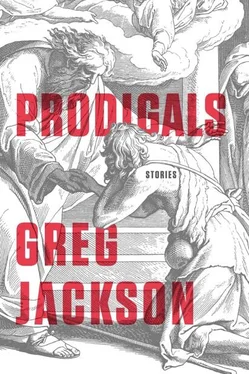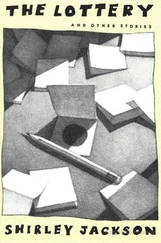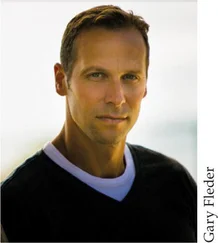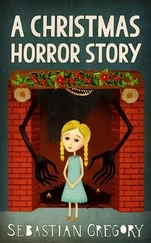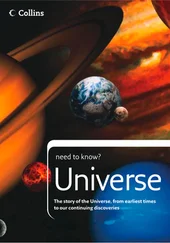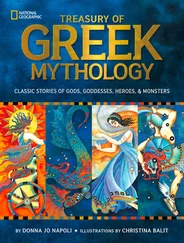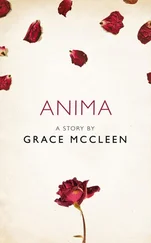I didn’t follow this line of thinking quite so far until we were on our way to the hike that afternoon. It was another perfect day — each one was — and we had mobilized early, nearly two hours before the closing time, which by that point had been embossed forever on our psyches. The sun hung in the southern sky at the height of a double off the left-field wall, hot and pleasant and a whitish color, slipping at its edges into a pale powdered blue that had the particulate quality of noise in a photograph. I was glad we were going for the hike. It felt almost moral in the context, and even if it was a relatively level hike and only about an hour round-trip, and there was a waterfall at the end hidden among the sere folds of rock, I thought at least we will have to put something in, something of ourselves, to get whatever out.
Our friend the ranger was waiting for us at the gate, and this time we approached him with an air of triumph, as though he had doubted our resolve, but we had persevered and now things would be different.
“Hey,” we said.
“Hello,” he said, perhaps smiling a little.
We looked at one another for a minute.
“Trail’s closed,” he said. “Closes early today, on account of the holiday.”
“Oh, come on ,” Eli said. “You realize we’ve been here every day this week.”
The ranger actually had his hands on his hips, as if posing for a catalogue. The olive-green uniform hung on him so perfectly that I wondered whether he wasn’t perhaps the fit model for the entire clothing line.
“Park reopens January second,” he said. “Eight a.m. sharp.”
“Is it because we’re Jews?” Marta said.
The ranger’s gaze, emerging from his tan and handsomely creased face, cast out to the distant escarpments on the far side of the valley.
“Same rules for everyone,” he said.
“What if we hike really fast?” said Marta. “You just let that woman with a walker in. We’re definitely going to be faster than her.”
“Hike takes one hour, thirty minutes. We lock the gate in one hour, twenty minutes. You do the math.”
“I feel like you’re not getting my point,” Marta said.
“Same rules for everyone,” he repeated.
“What is this, Brown versus Board of Education ?” Marta said under her breath.
“Your hike is a piece of shit,” Eli informed the ranger.
“You can always hike the Sagebrush Trail,” he said, pointing vaguely to a boulder-strewn slope in the distance that seemed to rise, precipitously, toward nothing.
“And the Sagebrush Trail has a waterfall?” I said.
“Ha, ha. No.”
“Such bullshit,” Marta said, laughing lightly, such warm placid annoyance in her tone that it seemed to me suddenly a master class in the management of emotions in a public capacity, the decoupling of an emotion’s expression from its affective consequences. And it came to me then, as we hiked the Sagebrush Trail, just how public most people’s lives were and how un public mine was, how unsuited to public acquittal I had become in this modern world of ours, this world of glass fires, where flames hovered over drifts of glass, playing on the idea that a fire consumes some fuel beneath.
We hiked the Sagebrush Trail until boredom overtook us. It seemed not to go anyplace or end, and at the top of a ridge, where we finally stopped, a Hasid in black robes stared out across the Coachella Valley, past the lush plot of Palm Springs, which sat in the dun funnel of mountains like a piece of sod on a field of dirt. I wondered what it would take to imagine my way into his mind. I tried to look out at the scene through his eyes and couldn’t. I could only see it through my eyes: the grid of roads, the golf courses twined round their fancy houses, the brassy glow of the sun catching on the mountain faces to the south, the lights of convenience stores blinking on in the dusk. Another mellow California evening, where the idea of Sémillon and a cigarette in the velour air seemed a kind of permission — to be cosmically insignificant, maybe — an evening as lovely and forgiving as longing, as the line where we saw the shadow of the mountains end several miles to the east. I touched Lily to see if she felt it too.
* * *
Our steaks — the steaks we ate that night — had been cows that had eaten Lord knows how much grain, grain farmed using heavy machinery and fertilizer and then shipped on trucks, cows that had produced Lord knows how much waste and methane before they were slaughtered, before they were butchered and shipped to us on different trucks. It was a very special dinner, courtesy of the Maldives, Bangladesh, Venice. We were each supposed to say something, something meaningful or thankful, I suppose, that would begin to repay our debt to the cows and the people of Sumatra. I wanted to read a poem that had recently moved me. I had been trying to read it every night, as a prelude to dinner or a coda to dinner, but things kept getting in the way. The mood, for instance. It wasn’t a very poem-y poem, but it was a poem, and I guess it had that against it. Still, it was funny and affecting, and I saw it as a moral Trojan horse, a coy and subtle rebuke to everything that was going on, which would, in the manner of all great art, make its case through no more than the appeal and persuasiveness of its sensibility. The others would hear it and sit there dumbfounded, I imagined, amazed at the shallowness of their lives, their capacity nonetheless to apprehend the sublime, and the fact that I had chosen a life in which I regularly made contact with this mood. Don’t get me wrong. I didn’t expect this state to last more than a minute. But the poem had become meaningful to me as I felt increasingly stifled, or stymied, or something , and I was about to read it when dinner was very suddenly ready, and then when dinner was over dessert appeared, and then there were post-dinner cigarettes, and then we got a call that our cabs were on the way and we had to hurry to clear the table so that we could all do a few lines before the party. We crushed the coke into still finer powder and spread it, thin and beautiful, on the glass coffee table. And by the time we were packed into two cabs any memory that I had been about to read a poem, or that poetry was a thing that existed, had vanished.
Eli had done a line or two himself and I could feel him growing tense in the way he did, which I had come to know years before when we were roommates in college. It was the tenseness of someone who gets almost everything he wants very easily actually wanting something he’s not sure he can get. The thing Eli wanted, most proximately, was Wagner, who we’d heard was at the party to which we were en route, and yes, Eli wanted Wagner’s money, wanted the financing so that his film about Albert O. Hirschman could be made and play the festival circuit and make a bid to be picked up by Focus or Searchlight or whatever, but more than that, I think, Eli wanted to know he could bag a fish as big as Wagner. To try to get his mind off things, I asked who he liked in the Cotton Bowl, but he must not have heard me because he said, “It’s all the fucking drugs. Drink some water when we get there,” and then I realized that we were shouting across six people from opposite ends of a taxi minivan.
By the time we got to the party I was compulsively, twitchily, taking hard sniffs through my nose. At the door we were greeted by a contingent of bashful children in party hats who blew party horns and kazoos at us. I crouched down, taking one of the horns, and said something like “Now-aren’t-these-fun-and-who-are-you-don’t-you-look-pretty-where’s-the-bar?” and as I settled on the last word and realized I had addressed it to a six-year-old, it came to me that I probably shouldn’t talk to children for a while. They ran off, in any case, for their own whimsical reasons (I told myself), and I went to the kitchen and poured half a bottle of Aperol into a Solo cup because — well, let’s assume I had a reason at the time. I didn’t know anyone, but I was feeling pretty great when Eli came over to me and whispered in my ear.
Читать дальше
